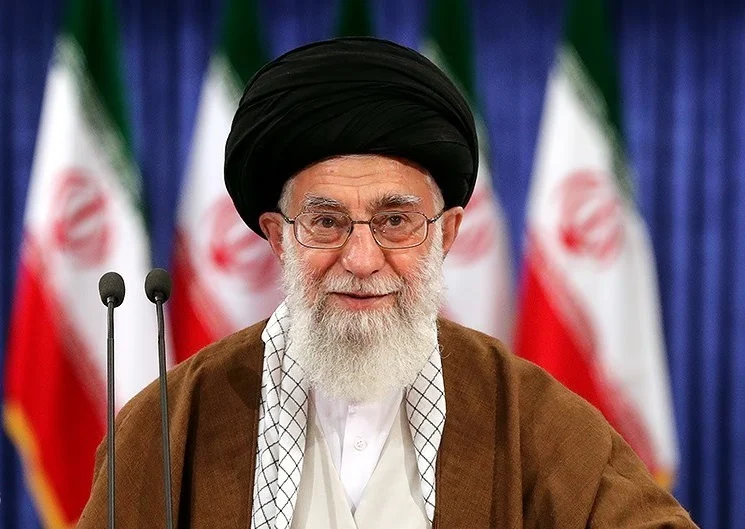 By Rabbi Yair Hoffman for the Five Towns Jewish Times
By Rabbi Yair Hoffman for the Five Towns Jewish Times
Rav Moshe Feinstein zt”l writes that cornflakes are shehakol. But others disagree.
Rav Feinstein zt”l ruled that Tefilah b’Tzibbur is only when there are ten people who are davening together –in other word four who davened already is not called Tefilah b’tzibbur. He brings a proof from the Chayei Adam. Do others disagree? Do others read the Rambam in a manner that would consider it tefilah b’tzibbur – not like Rav Feinstein?
A man hit his wife and demanded that she abort the child claiming that he never wanted children. She claims she would never have married him had she known this. Can the marriage be annulled? Rav Moshe Feinstein zt”l felt that there were grounds to do this. Rav Asher Weiss Shlita (Minchas Asher Vol. I #73) disagrees.
Where should one look when one wants to see alternative views to those of Rav Moshe zatzal?
A MUST HAVE SEFER
Every so often a sefer comes along that becomes a “must have” when dealing with a particular halachic area. The aptly named, “Psichas haIgros” by Rabbi Yonasan Rosman is just such a sefer because it opens up the halachic issues underlying a number of rulings of Rav Moshe Feinstein zt”l in his monumental Igros Moshe. Rav Rosman’s work is nearly exhaustive and he deserves a yasher koach for penning this very useful sefer. It is useful for Poskim who are dealing with contemporary halachic issues, Talmidei Chachomim delving into a sugya, and just about anyone who wishes to understand issues on a deeper level.
On the other hand, it is this author’s view that the work could have been written in a more deferential tone. Not that it is disrespectful per se, but there are subtle nuances in which the sources were cited that could have been tweaked.
Rav Moshe Feinstein’s Igros Moshe represented the most far-reaching halachic work since the Mishna Brurah, even though it is a collection of responsum. Psichas haIgros discusses the other opinions. Certainly, the best way to fully understand the implications of novel and deep ideas is to consider the alternatives.
Rav Rosman, a Kollel yungerman in his upper thirties studies in the Kollel in Willowbrook in Staten Island.
Its 697 pages are packed with very valuable information wherein almost every sefer, journal article, and even website that discussed Rav Feinstein zatzal’s position and perhaps took issue with Rav Feinstein’s position is discussed. The author claims that it was merely busy work on his part, but in fact, it is not. He displays a remarkable erudition in discussing the underlying issues. This is not to say that he takes the position of those who argue per se. Rather he has unearthed the other positions, collated them, classified them and presented the relevant information well. The author, at times, demonstrates how Rav Feinstein, in fact, responded to the critique. Here too, the author demonstrates great erudition.
This is not to say that the author is not controversial. He often quotes the highly disrespectful m’aneh l’igros, controversial blogs, and even a JTS publication.
FASCINATING APPENDICES
The book contains six appendices. The first deals with errors in understanding of the underlying science. The second deals with how to deal with some of the apparent contradictions in the Igros Moshe. Starting on page 664, the author lists some 54 discrepancies or contradictions in Rav Moshe Feinstein’s writings. In the third appendix the author demonstrates that Rav Feinstein did not consider any of the newly unearthed texts or manuscripts and attributed them to an erring student. In the fourth appendix, Rabbi Rosman discusses Rav Feinstein’s approach and usage of Rishonim and Acharonim. Rav Feinstein generally did not delve significantly in Acharonim, with the exception of the Mishna Brurah and the Aruch haShulchan. He cites another source that Rav Feinstein’s view was that when the Aruch haShulchan argues with the Mishna Brurah the halacha was with the Aruch HaShulchan.
In appendix five, Rabbi Rosman compiles a list of thirty different principles of Psak Halacha that are found in the Igros Moshe. Examples are: A Posaik can decide the halacha in accordance with a lone opinion, if he sees that view as compelling (YD III #69). One should be stringent in accordance with a lone opinion if his view is compelling (YD III #53). A matter discussed in the Zohar is obligatory if there is no contradiction to it from the Talmud or the known Midrashim, but we do not compel people to do so (OC V 20:31). He disagrees with the Mishna Brurah who ruled like the Pri Magadim against the Vilna Gaon and the Yaavetz (OC V 9:9).
In Appendix six, Rabbi Rosman lists a number of innovative ideas found in the Igros Moshe.
The author of the review can be reached at [email protected].











9 Responses
If someone is learning a halochic “topic” …its great…mention ALL the Torah opinions.
But what is the purpose of this sefer?
And who alive (besides a godol) can have the audacity to express an opinion regarding R Moshes psokim?
If someone has a particular shailo …let him research it in the Bais Hamedrash.
Many seforim on a particular “miktzoa” bring all the views.
If the opposing views are brought “cut and dry”….like we have mishno brura with chaya odom on bottom as,a,example that perhaps would be fine.Anything above that discussing R Moshes psokim is beyond ludicrous.
. . . Busy work. . . Ma’amin l’Igros. . . JTS. . . None of this sounds like the results of ameilus and yegi’as ha’Torah let alone eimah, yirah, resses, and zei’ah required for true limud ha’Torah. I don’t see why this isn’t being dismissed without even a second thought.
Haskamos???
the whole thing sounds like חוצפה to me. Rav Moshe z”l was the godol hador. He was the authority. The Satmar Rebbe disagreed with him on a few matters. But when his chassidim wanted to approach Reb Moshe personally, the Rebbe asked them, “what will you do if he talks to you in learning?” I am very disappointed that this sefer should be printed. I know a certain lamdan that refuted Reb Moshe and terrible things happened to him. אל תגעו במשיחו.
What a joke! It’s been 30 years since rav Moshe was nifter and you have this young man bringing dubious sources to a serious discussion- not to mention some are from heretical places.
we used to say, “from Moshe (rabanu) to Moshe (rambam) there has never been anyone like Moshe (Feinstein).
He was the undisputed posek and leader of a generation. May his memory be a blessing for all.
Yup…now AFTER we made our point (and it bothers me to no end)…..perhaps lets do and say what R Moshe zl would have wanted done for his honor…nothing.Perhaps.
Whos to say, that one cant argue with Reb Moshe despite his gadlus? No one is knocking his gadlus, and no one is arguing with the fact, that he was one of the biggest poskim of our times. But that doesnt mean there are no different opinions, and if the author has a valid source, he is well within his rights, to offer another opinion.
Actually, based on one example that is quoted in the article, I can offer a different opinion right away. The author quotes Reb Moshe as ruling, that if you dont have 10 people actually davening, then you cant form a minyon. The shulchon oruch horav would disagree with that, and rules that if you have 6 mispallelim, and another 4 who are present, it is sufficient for tefilo betzibur. Obviously, there are various opinions, but why cant I follow the shulchon oruch horav? To say, that one can only follow Reb Moshes psak, is totally ludicrous.
Uzbek…you are correct…you can follow other poskim …noone said otherwise….but what is the purpose of this sefer.
Read the comments
I read this article because i know the mechaber of this sefer and heard there was a review. I think the author of the article was given permission to review the sefer, but did the commentators actually see the sefer? or just this article?
To my knowledge there is no heter of publishing reviews on most things, especially restaurants, or really… anything made by…anyone! since it almost always involves loshon hara, and comments surely lead to loshon hara! what is the point of this article? and what is the point of the comment section?
do you people wait for these reviews just so that you can discuss them? dont you have anything better to do with your time?
I will likely not follow up on this comment of mine, but please, everyone, do be careful about what you say and do, bc chances are that if it involves a person, you are speaking loshon hara. Dont get angry, dont try to pasken from SHMIRAS HALASHON, ask a rabbi.